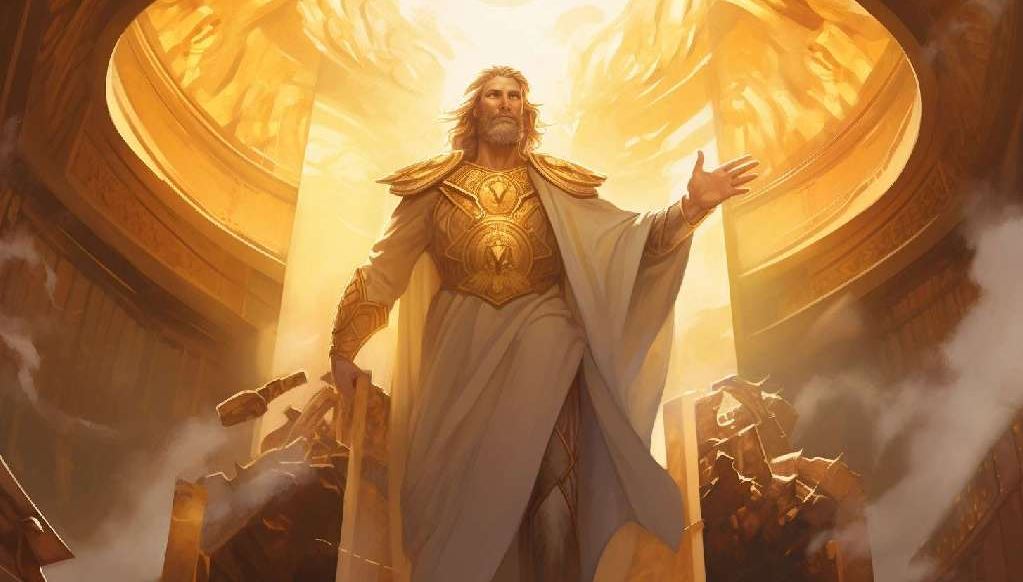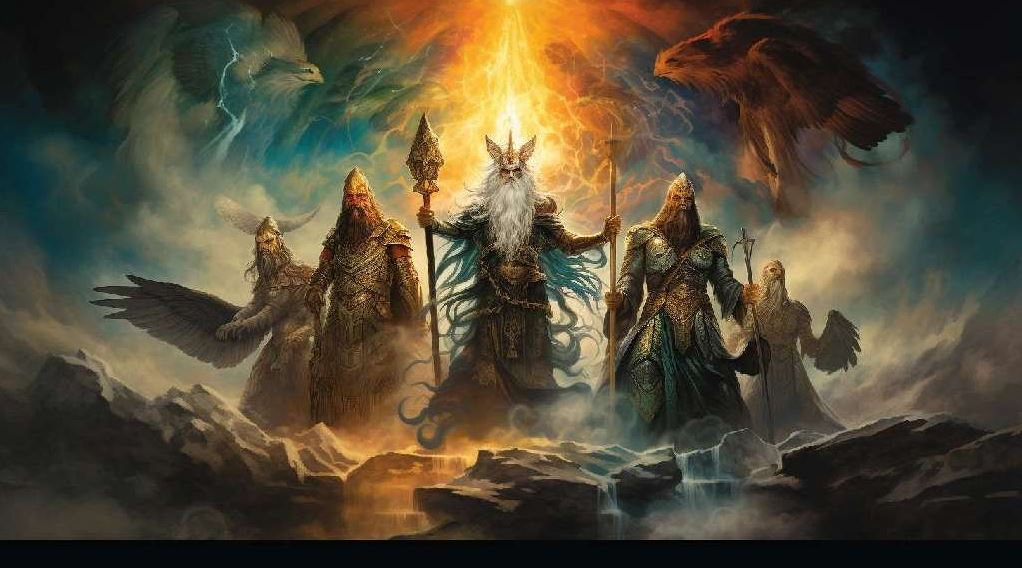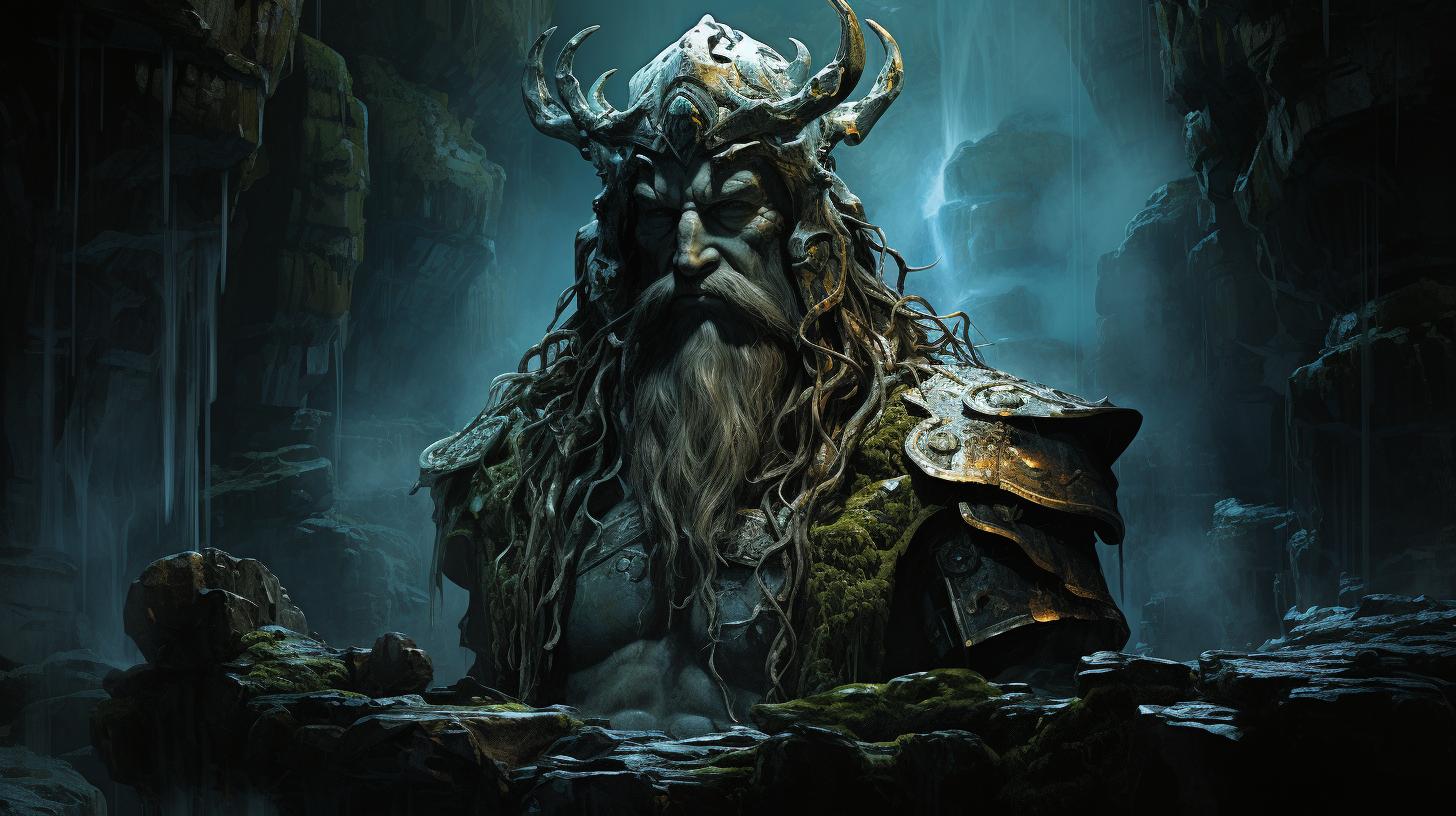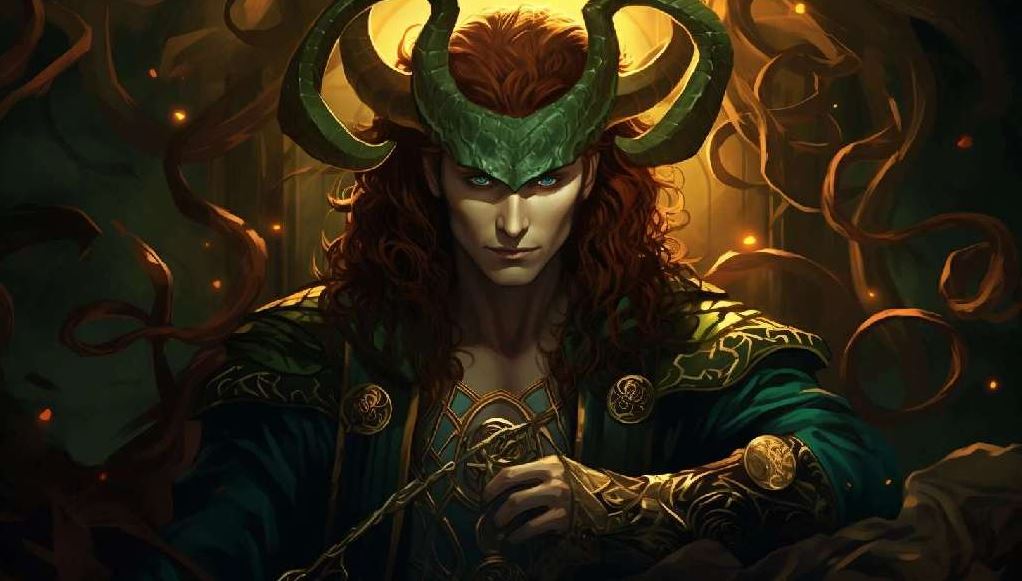Forseti Norse God: Unveiling the Mysterious Norse Deity of Justice in Ancient Norse Mythology

Forseti Norse God, the enigmatic figure of Norse mythology, holds the realm of justice in his hands. From ancient Norse literature to ambiguous references in medieval texts, Forseti’s presence sparks curiosity.
Residing in the resplendent hall of Glitnir, he dispenses fair judgments and resolves legal disputes. As one of the twelve principal gods, Forseti’s wisdom and jovial nature add to his importance in legislation.
With connections to Icelandic culture and the role of the president, Forseti’s legacy continues to intrigue, challenging traditional notions of justice. Unveil the enigma of Forseti, the Norse god of justice.
Origins of Forseti in Norse Mythology
Forseti, a mysterious Norse god, has intriguing origins in Norse mythology. Exploring ancient Norse literature provides valuable insights into the mention of Forseti and sheds light on his significance within the Norse pantheon.
Additionally, there are ambiguous references to Forseti in medieval texts, which contribute to the enigmatic nature of this deity. Understanding Forseti’s role in the pantheon of Norse gods is crucial for unraveling the mythology surrounding him.
Forseti’s Mention in Ancient Norse Literature
Within the pages of ancient Norse literature, such as the poem Grímnismál, Forseti’s name surfaces, offering glimpses into his character and responsibilities. Descriptions depict his residence, Glitnir, as a resplendent hall crafted from precious metals, showcasing his association with justice.
It is said that Forseti has a unique ability to resolve legal disputes, highlighting his role as the god of justice.
Ambiguous References to Forseti in Medieval Texts
While exploring medieval texts, references to Forseti become more obscure and open to interpretation. The intriguing mention of Fositesland in the Life of Saint Willibrord suggests the existence of a god worshiped on this island, possibly Forseti.
Additionally, a mysterious figure imparting laws to wandering lawmakers at sea invites speculation about whether it is Forseti or another divine entity.
Forseti’s wisdom and ability to make fair decisions contribute to his pivotal role in shaping the laws that governed Norse society.
Forseti: The God of Justice and Legislation
Forseti, the Norse god of justice, embodies the principles of fairness and impartiality. As we delve into Forseti’s enigmatic realm, we explore various aspects related to his domain over justice and legislation.
Glitnir: Forseti’s Resplendent Hall of Justice
Glitnir, the magnificent hall where Forseti holds court, stands as a beacon of justice and enlightenment. Crafted from shimmering gold and silver, the hall emanates an aura of resplendence, befitting a god of fairness and righteousness.
Forseti’s Genealogy and Controversies Surrounding It
The genealogy of Forseti brings forth intriguing discussions and controversies. Some sources claim him to be the son of Baldur and Nanna, while others question the authenticity of this lineage.
These uncertainties add a layer of mystique to Forseti’s origins and challenge our understanding of his existence.
Forseti’s Wisdom and Jovial Personality
Besides his role as the arbiter of justice, Forseti is renowned for his wisdom and jovial demeanor. His discerning judgment and ability to make fair decisions are revered by both gods and mortals alike.
This combination of intellect and geniality further enhances his position among the divine pantheon.
- Forseti’s wise counsel and impartiality offer solace to those entangled in legal disputes.
- His infectious laughter and optimistic outlook bring a sense of joy to those who seek his guidance.
- Forseti’s combination of wisdom and affability makes him both approachable and respected by all.
In conclusion, Forseti, the god of justice and legislation, presides over Glitnir, dispensing fair judgments and embodying the principles of righteousness.
While his genealogy remains shrouded in controversy, his wisdom and genial personality shape his significance in Norse mythology. Understanding Forseti’s role in justice and his resplendent realm adds depth and intrigue to the rich tapestry of Norse mythology.
Forseti in Norse Culture and Modern Interpretation
Exploring the influence of Forseti, the Norse god of justice, in both ancient Norse culture and its modern interpretation sheds light on the enduring significance of this deity. From his connection to the Icelandic presidency to the attributes attributed to him in worship, Forseti’s presence remains a significant aspect of Norse mythology.
Forseti and the Icelandic President
In Icelandic modern culture, the term “Forseti” is used to refer to the president of Iceland, invoking the god’s role as a figure of justice, peace, and truth. This connection highlights the deep-rooted influence of Norse mythology on the nation’s identity and governance.
The cult that developed around Forseti speaks to the reverence and importance placed on his ideals in Icelandic society.
Forseti’s Attributes and Worship
Forseti is hailed as the god of justice, known for his ability to resolve conflicts through fair decision-making. His domain, Glitnir, symbolizes his status as the arbiter of disputes, where the resplendent hall stands as a beacon of his judicial prowess.
Worship of Forseti centered around seeking divine guidance in legal matters and appealing for impartial judgment.
Comparisons with Greek Mythology and Linguistic Ties
Exploring the parallels between Norse and Greek mythologies adds an intriguing layer to the study of Forseti. While the extent of these connections remains a subject of debate, linguistic scholars have noted similarities between Forseti and the Greek goddess Themis, both representing divine justice.
Such linguistic ties hint at the potential cross-cultural influences across ancient civilizations.
- Forseti’s significance as the Norse god of justice and legislation.
- The role of Glitnir, his resplendent hall, as a center for resolving legal disputes.
- The controversies surrounding Forseti’s genealogy and the debates surrounding his authentic lineage.
- The wisdom and jovial personality attributed to Forseti in Norse mythology.
- The connection between Forseti and the Icelandic president, highlighting his enduring impact on governance and culture.
- The worship of Forseti, centered around seeking his guidance in legal matters and upholding the ideals of justice.
- The potential linguistic ties and mythological comparisons with Greek mythology.
By delving into Forseti’s cultural and modern interpretations, we gain a deeper understanding of the god’s enduring relevance and his significant role in Norse society.
As we navigate the complexities and influences of various cultures, Forseti’s legacy continues to serve as a reminder of the importance of justice, fairness, and truth in our own lives.
Legends and Stories Associated with Forseti
Delve into the captivating legends and stories that revolve around Forseti, the Norse god of justice. These narratives shed light on his significant role in various aspects of Norse society, including legislation, mediation, and conflict resolution.
Forseti’s Significance in Legislation
Forseti’s influence in legislation is undeniable. As the god of justice, he presides over legal matters and helps ensure fair outcomes. Ancient Norse societies regarded Forseti as the ultimate arbiter, turning to him for guidance in resolving disputes and upholding the principles of equity and righteousness.
Deities Associated with Forseti
Within the intricate web of Norse mythology, Forseti shares connections with several deities. Notably, he is the son of Balder and Nanna, two prominent figures in Norse mythology. Balder, associated with beauty and light, contributes to Forseti’s divine lineage, while Nanna represents loyalty and devotion.
Understanding these intricate familial ties sheds light on Forseti’s divine nature and place within the pantheon.
Forseti’s Role in Mediation and Conflict Resolution
As the Norse god of justice, Forseti holds a vital role in mediation and conflict resolution. Many tales depict him as a wise and fair arbitrator, skillfully navigating contentious situations to reach peaceful resolutions.
His calm demeanor and impartial judgment inspire others to seek his assistance in resolving conflicts, whether among gods or mortal beings.
These legends and stories encompass Forseti’s profound significance in Norse society, showcasing his enduring legacy as the god of justice and his pivotal role in resolving conflicts and upholding the principles of fairness and righteousness.
Forseti: The Norse God of Justice Unveiled
Forseti’s Limited Presence in Norse Myths and Texts
In the vast tapestry of Norse myths and ancient texts, Forseti’s presence may appear somewhat limited. While mentioned twice in ancient Norse literature, specifically in the poem Grímnismál and the Prose Edda, there are few additional references to this enigmatic deity.
Nonetheless, these mentions provide glimpses into Forseti’s significance as the god of justice and his role in resolving legal disputes.
Relevance and Importance of Forseti in Norse Society
Despite the scarcity of direct information, Forseti’s relevance and importance in Norse society cannot be underestimated. As one of the twelve main gods, his role as the god of justice carried great weight.
Forseti’s wisdom, ability to make fair decisions, and his jovial personality made him a central figure in the legislative processes of ancient Norse communities. His presence ensured the enforcement of just laws, fostering harmony and order among the people.
Legacy and Influence of Forseti in Northern Europe
The legacy and influence of Forseti extend beyond the ancient Norse civilization. His figure emerged in later texts and cultural references, including the connection between the term “Forseti” and the President of Iceland in modern days.
This association reflects Forseti’s embodiment of justice, peace, and truth as seen in the role of the Icelandic president. Moreover, questions arose regarding possible linguistic connections to ancient Greek mythology, further highlighting the far-reaching impact of Forseti’s influence in Northern Europe.
..



















